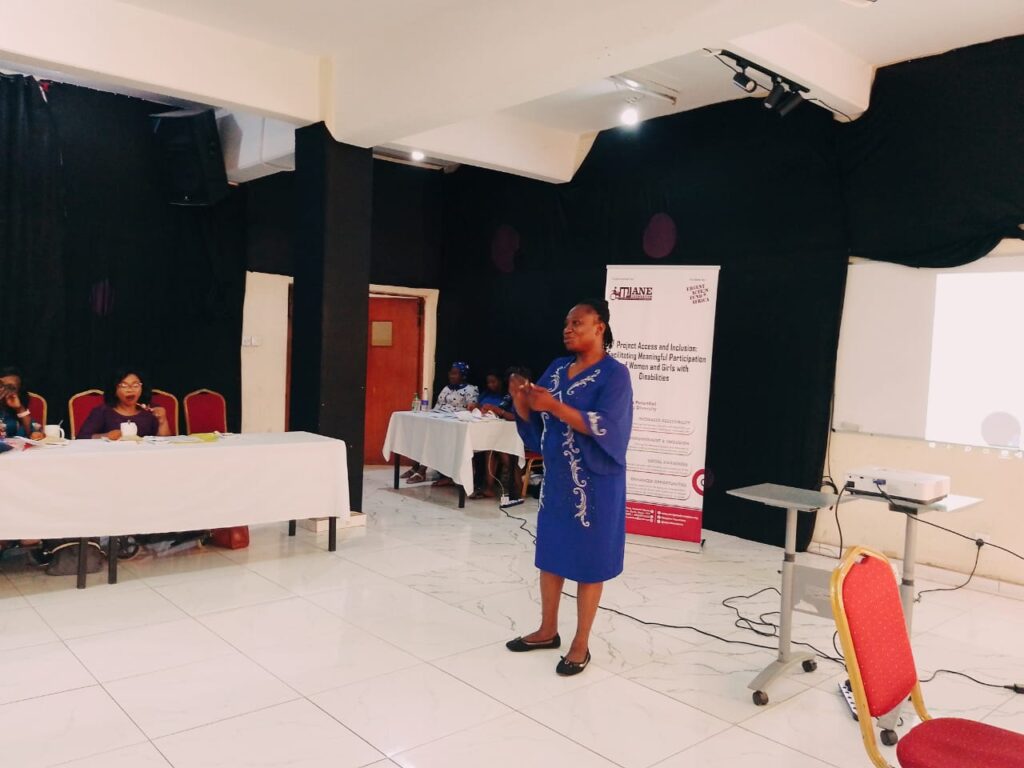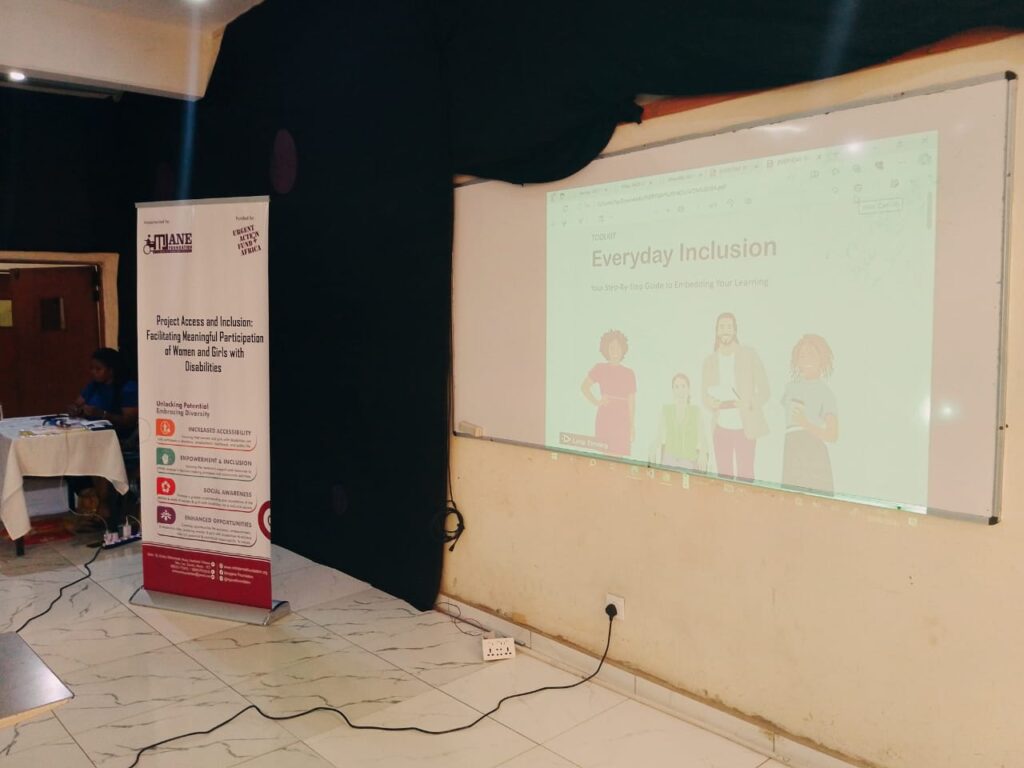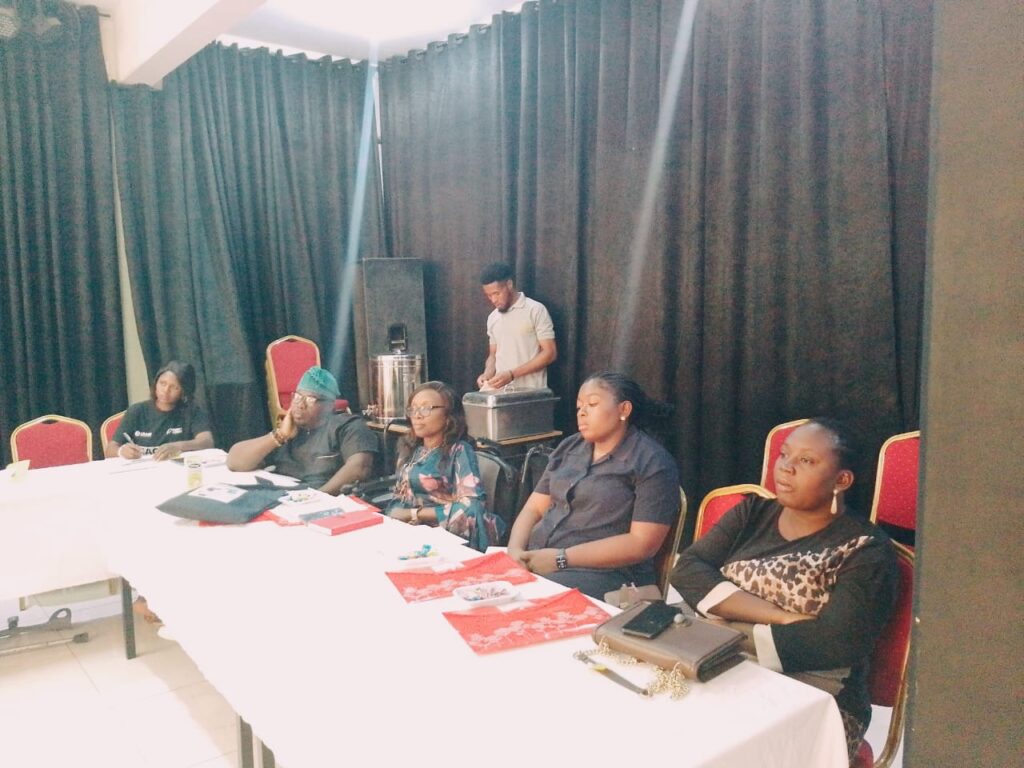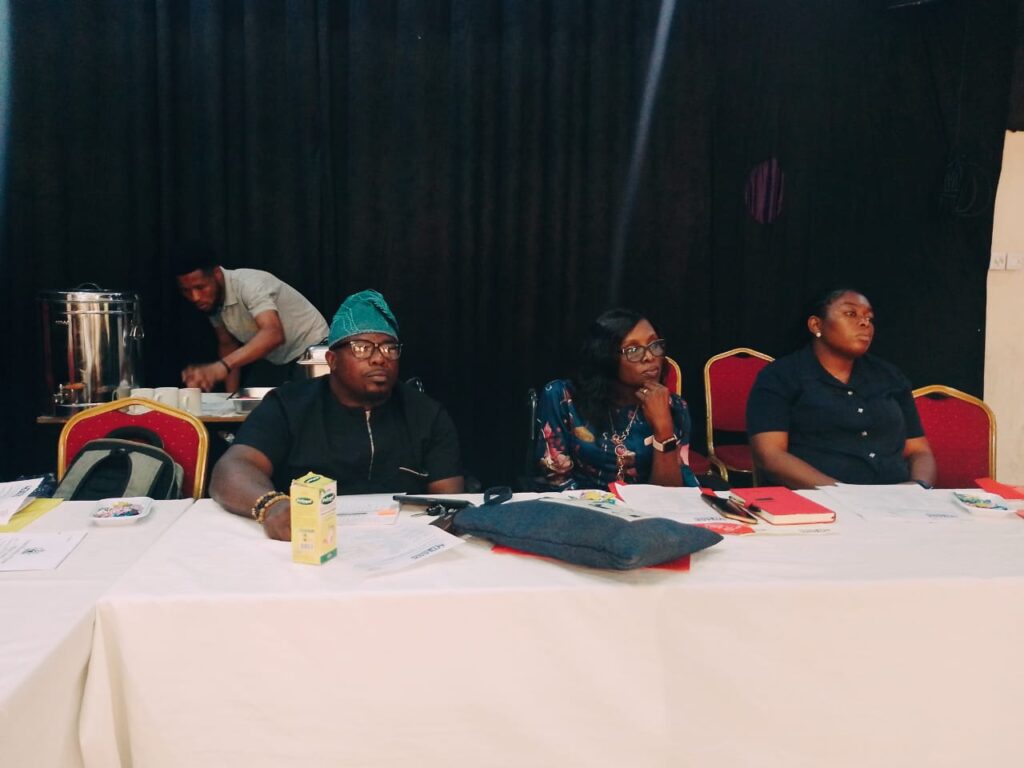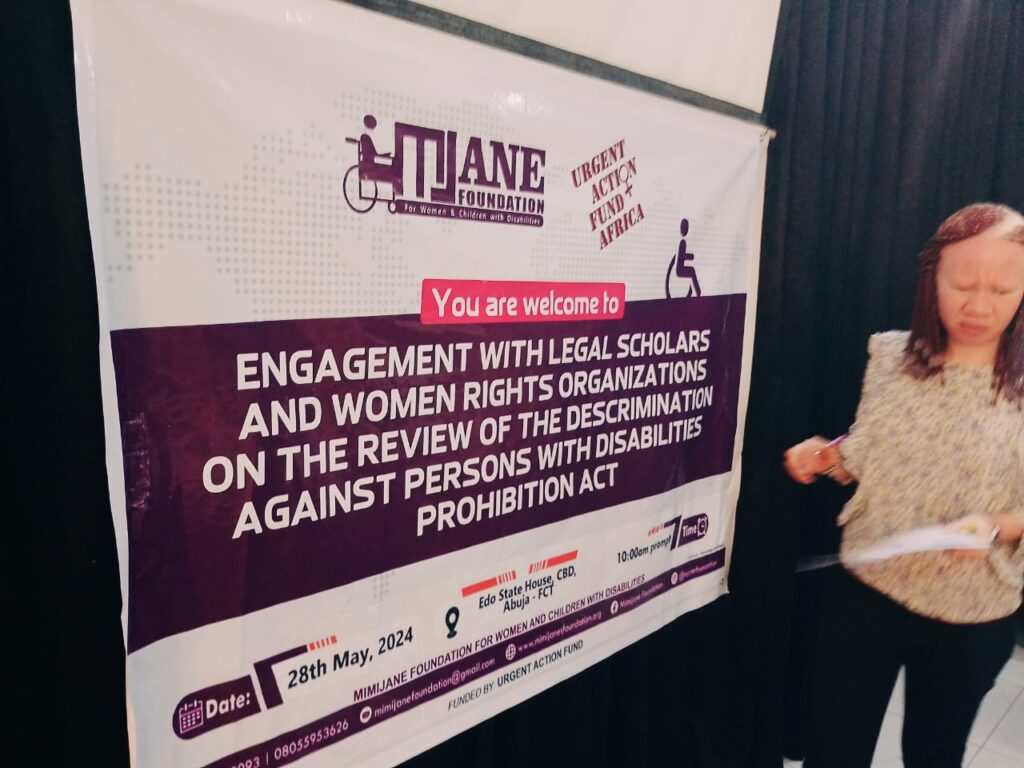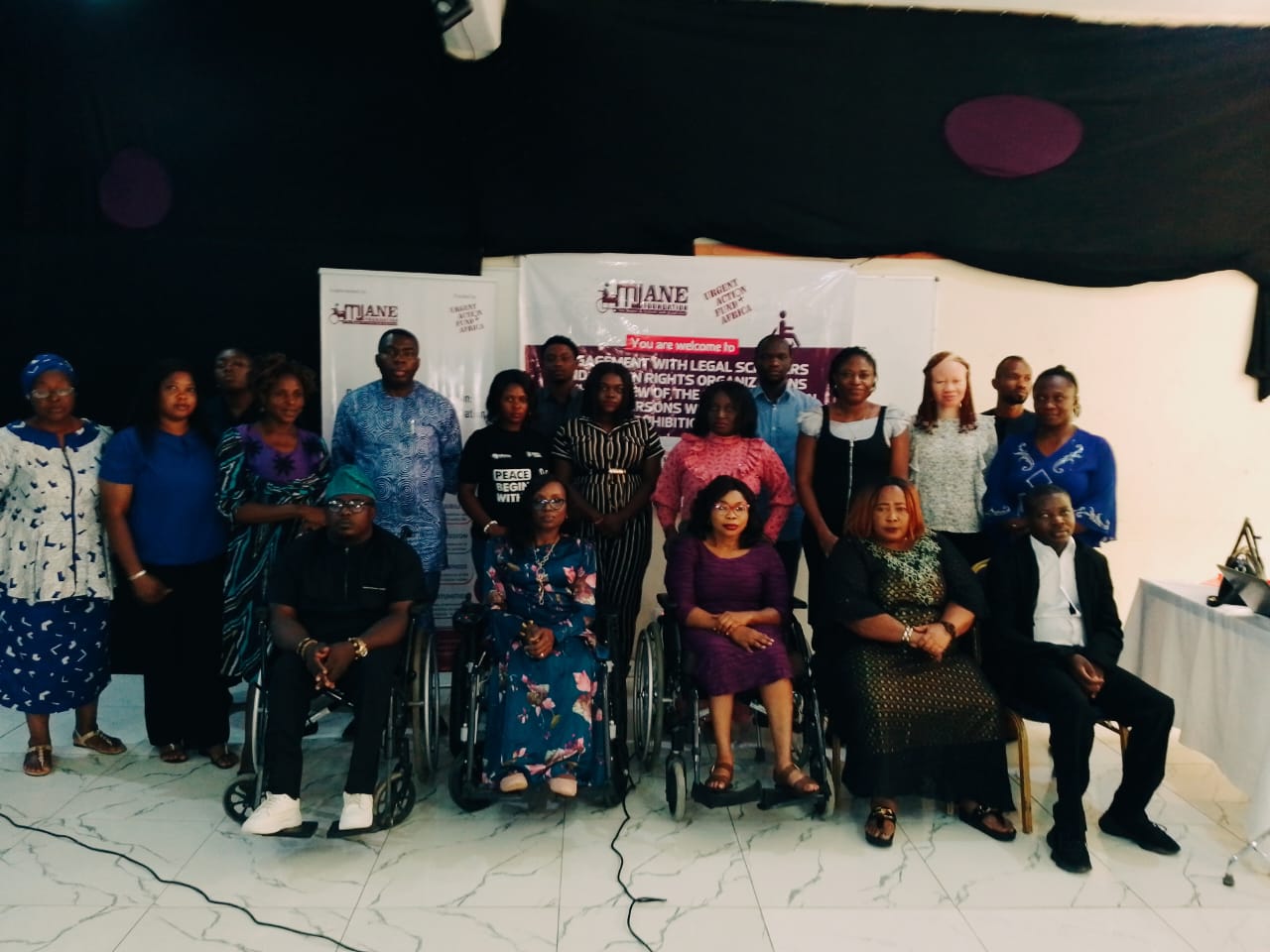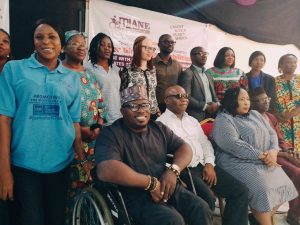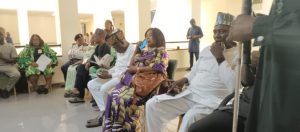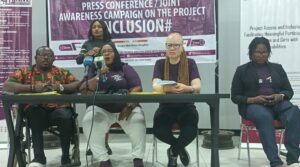On Tuesday in Abuja, the Mimijane Foundation for Women and Children with Disabilities led an important roundtable discussion focusing on the significant gaps in the Discrimination Against Persons with Disabilities (Prohibition) Act 2018, particularly concerning the inclusion of women with disabilities. The event gathered legal experts, women’s rights organizations, and individuals with disabilities for an intensive day of discussion and brainstorming.
Ambassador Beatrice Awala Mube, Executive Director of the Mimijane Foundation, opened the session by welcoming participants and thanking them for their dedication to this crucial cause. “This foundation is about everyone with disabilities in Nigeria, not just me,” Mube said. “Our goal is to unite voices to tackle the many challenges faced by persons with disabilities.”
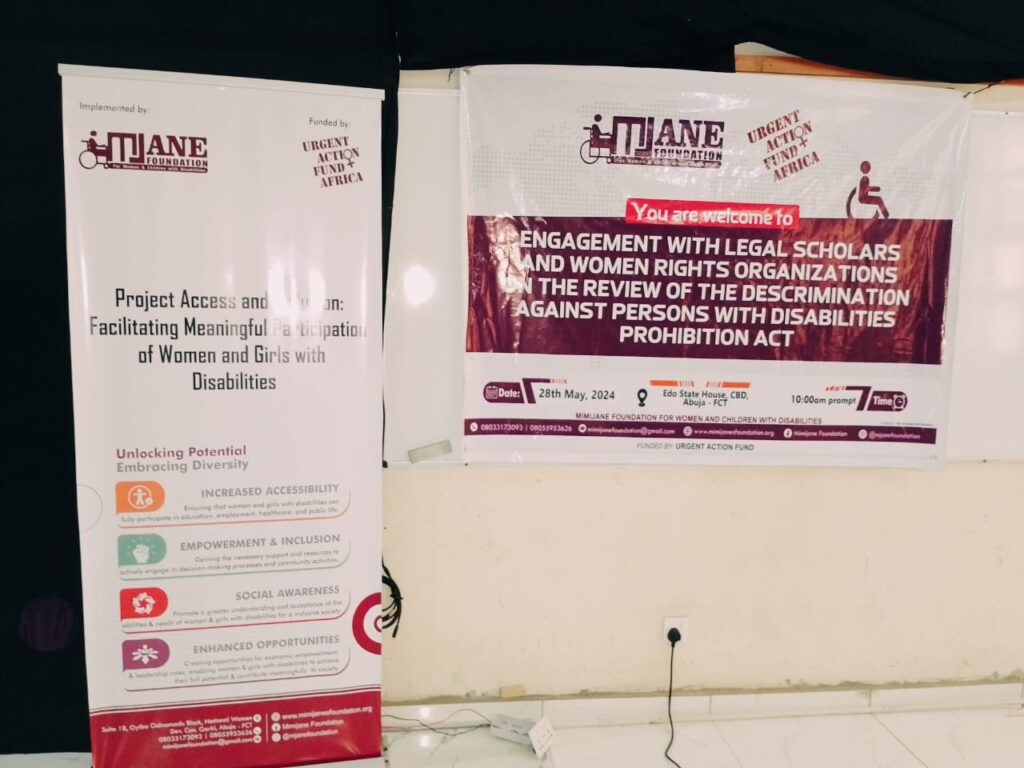
Mube highlighted the event’s purpose: to identify gaps in the Disability Act related to women and girls with disabilities, ensuring their interests are included in the ongoing review and amendment process. “This effort is essential to articulate the needs of women with disabilities, enshrine them in the Act, and ensure their involvement in its implementation,” she added. “The grace period is over. It’s time to hold the government accountable for implementing the Act. Sadly, the specific needs of women with disabilities were overlooked in the original Act, which is why we have brought together experts and stakeholders to identify these gaps and inform lawmakers during the review process.”
Dr. James David Lalu, Executive Secretary of the National Commission for Persons with Disabilities (NCPWD), represented by Nike Akinbola, Head of the Gender Unit, acknowledged the existing gaps in the Act. “The Commission understands the importance of including women with disabilities because of their unique challenges,” Akinbola said. “That’s why we’ve established a gender unit led by a woman with a disability.” He expressed support for the ongoing efforts to amend the Act to better serve women with disabilities.
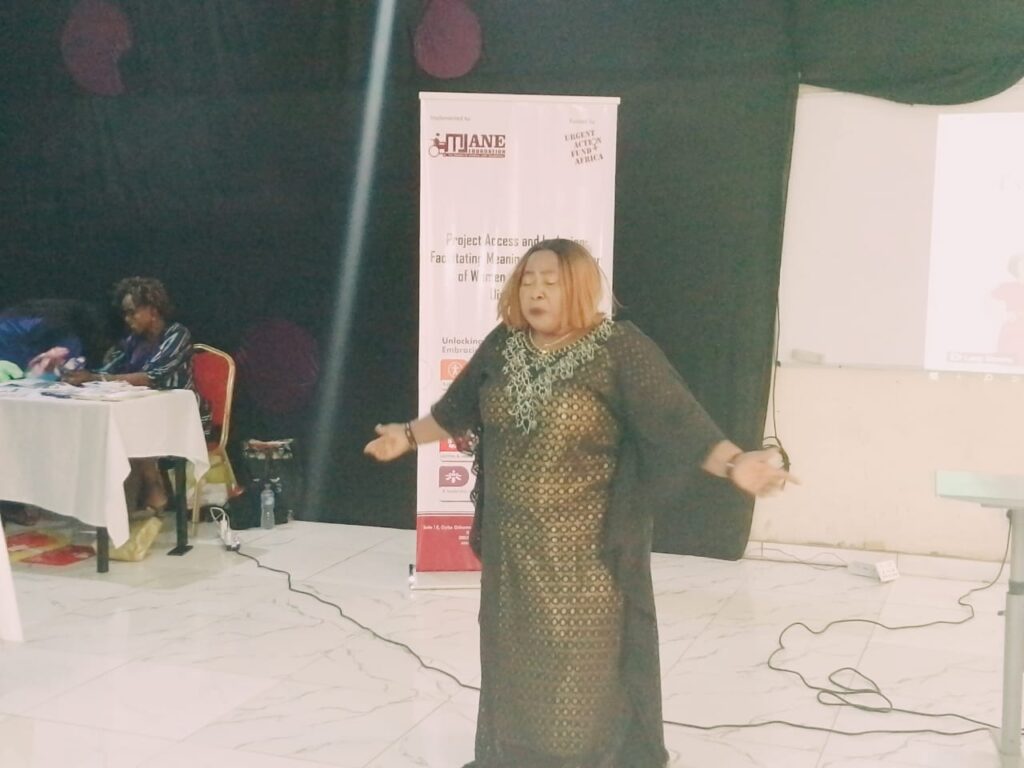
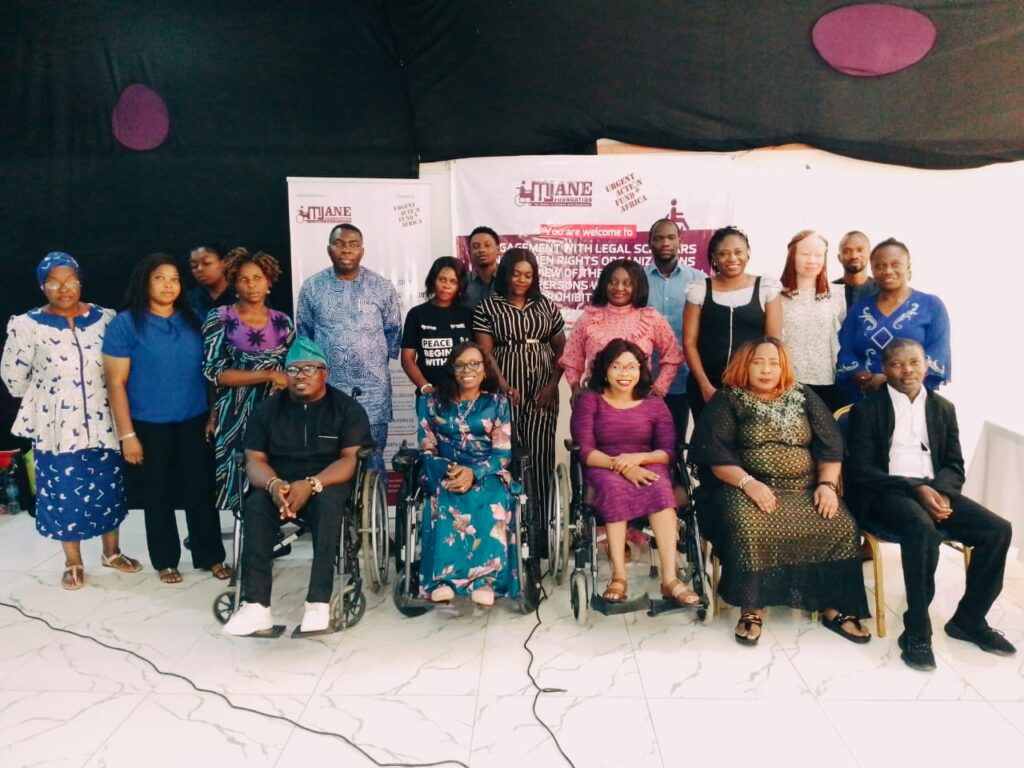
Aliyu Abdullahi, President of the Joint National Association of Persons with Disabilities (JONAPWD), represented by Uche, emphasized JONAPWD’s initiatives to empower women with disabilities through training programs. “As we push for the implementation and compliance of the Act beyond its moratorium period, it’s vital that the interests of women with disabilities are included in the review. Their voices must be part of the implementation process to ensure their issues are addressed,” Abdullahi stressed.
Susan Kelechi, representing Grace Jerry, Executive Director of the Inclusive Friends Association (IFA), delivered a powerful goodwill message. She highlighted the organization’s strong support for integrating women’s rights into the Act. “Fifteen percent of Nigeria’s population are persons with disabilities, a significant number that must be taken seriously. Women and children with disabilities, who make up the majority of the disability population in Nigeria, must have their needs included in the Act to address the core issues they face,” Kelechi urged.
Comrade Chris Agbo, Executive Director of The Qualitative Magazine, praised the Mimijane Foundation for organizing such a timely and critical meeting. “The drafters of the Disability Act, in their wisdom, left certain issues open to allow for future amendments, providing an opportunity now to review and include more essential items. Women with disabilities face double discrimination due to their gender and disability, making it crucial that their needs are reflected in the Act,” Agbo stated. He also pledged his platform’s support to advocate for women with disabilities in the review process.
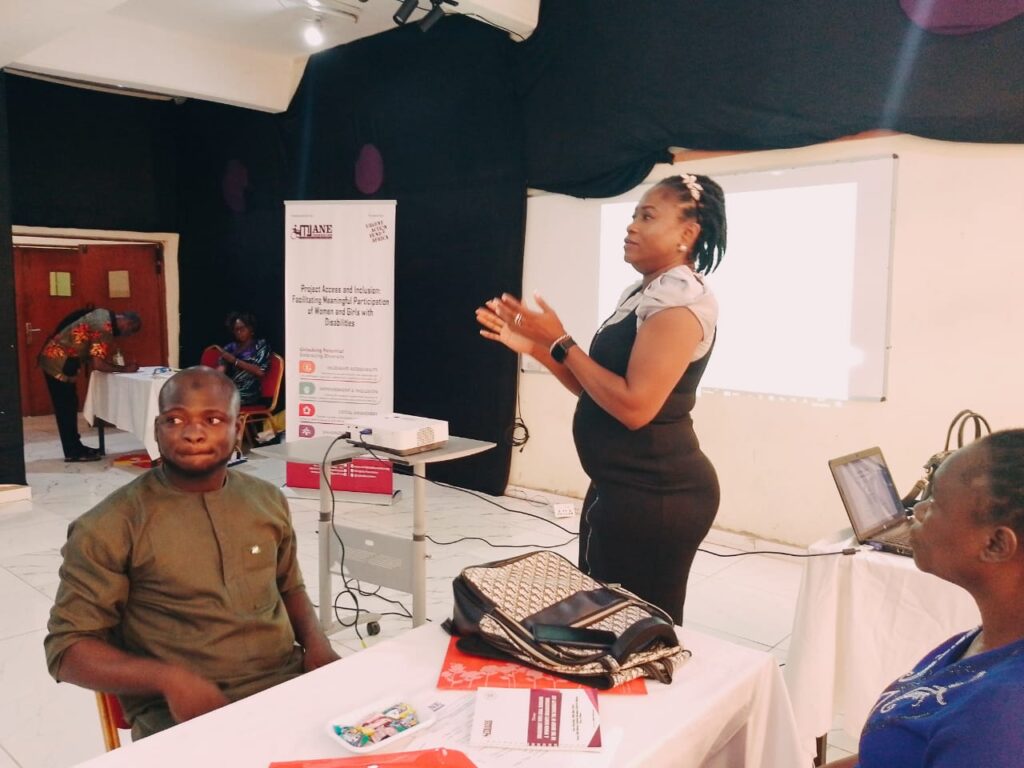
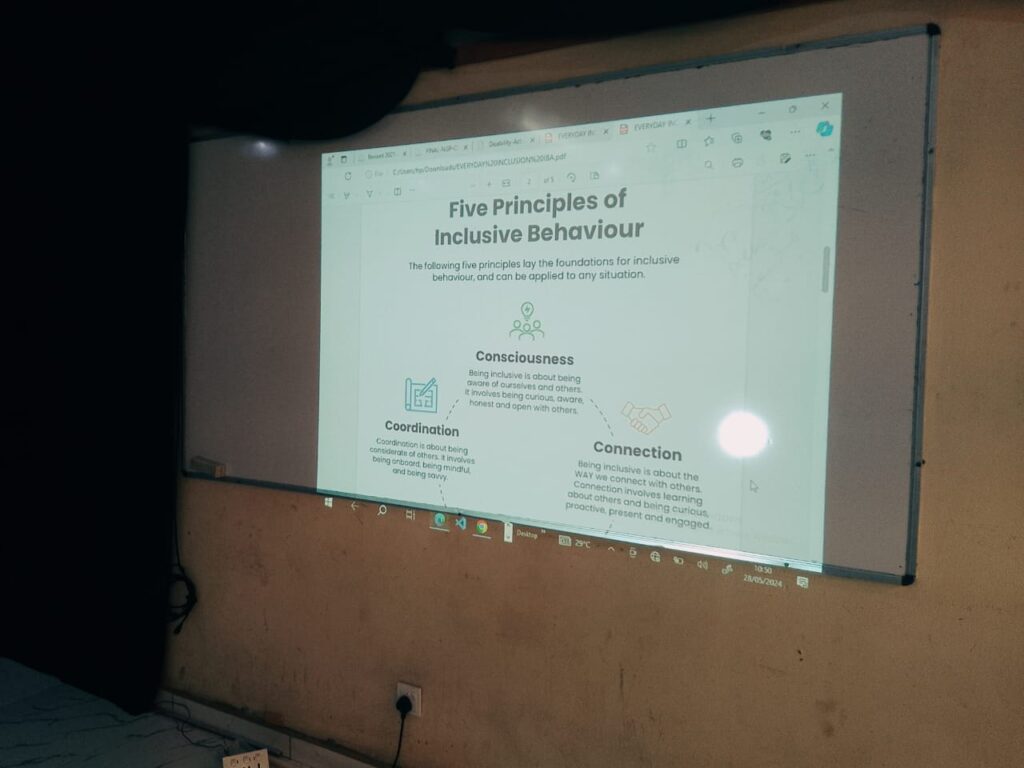
Victoria Sani, representing Lois Auta, President of the Network for Women with Disabilities (NWD), discussed the ongoing discrimination faced by women with disabilities in accessing services in Nigeria. “Women with disabilities are excited about this initiative and will support the identified gaps by organizing peaceful protests to the National Assembly, advocating for their inclusion in the Act,” Sani announced.
Prof. Tamino Kabiru, from the Association of Legislative Drafters and Advocacy Practitioners, provided a critical perspective. He recalled advising during the drafting of the Disability Act to include all contents of the United Nations Convention on the Rights of Persons with Disabilities (UNCRPD). “Had we annexed the entire treaty to the Act, we wouldn’t need these revisions now. For instance, the Act’s failure to address the needs of PWDs in elections, a provision in the UNCRPD, became apparent only before the 2019 elections,” Kabiru noted.
Facilitator Barrister Uzoma Anaeto guided participants through the gender components of the Disability Act using key indicators. She introduced the five principles of Inclusive Behaviour to emphasize the importance of inclusion and led group discussions to identify gaps in different parts of the Act from a gender perspective.
In her closing remarks, Cynthia Ukachi, Program Officer of the Mimijane Foundation, assured that the foundation would consolidate the points raised during the discussions and contribute substantively to the review of the Disability Act in the National Assembly. “We will collaborate with all the organizations present to ensure the voices and needs of women with disabilities are fully represented,” Ukachi concluded.
The roundtable, organized with support from Urgent Action Fund Africa, marked a significant step towards a more inclusive and comprehensive legal framework for persons with disabilities in Nigeria, especially women and girls. This initiative lays the groundwork for meaningful legislative progress and greater inclusion in the future.

